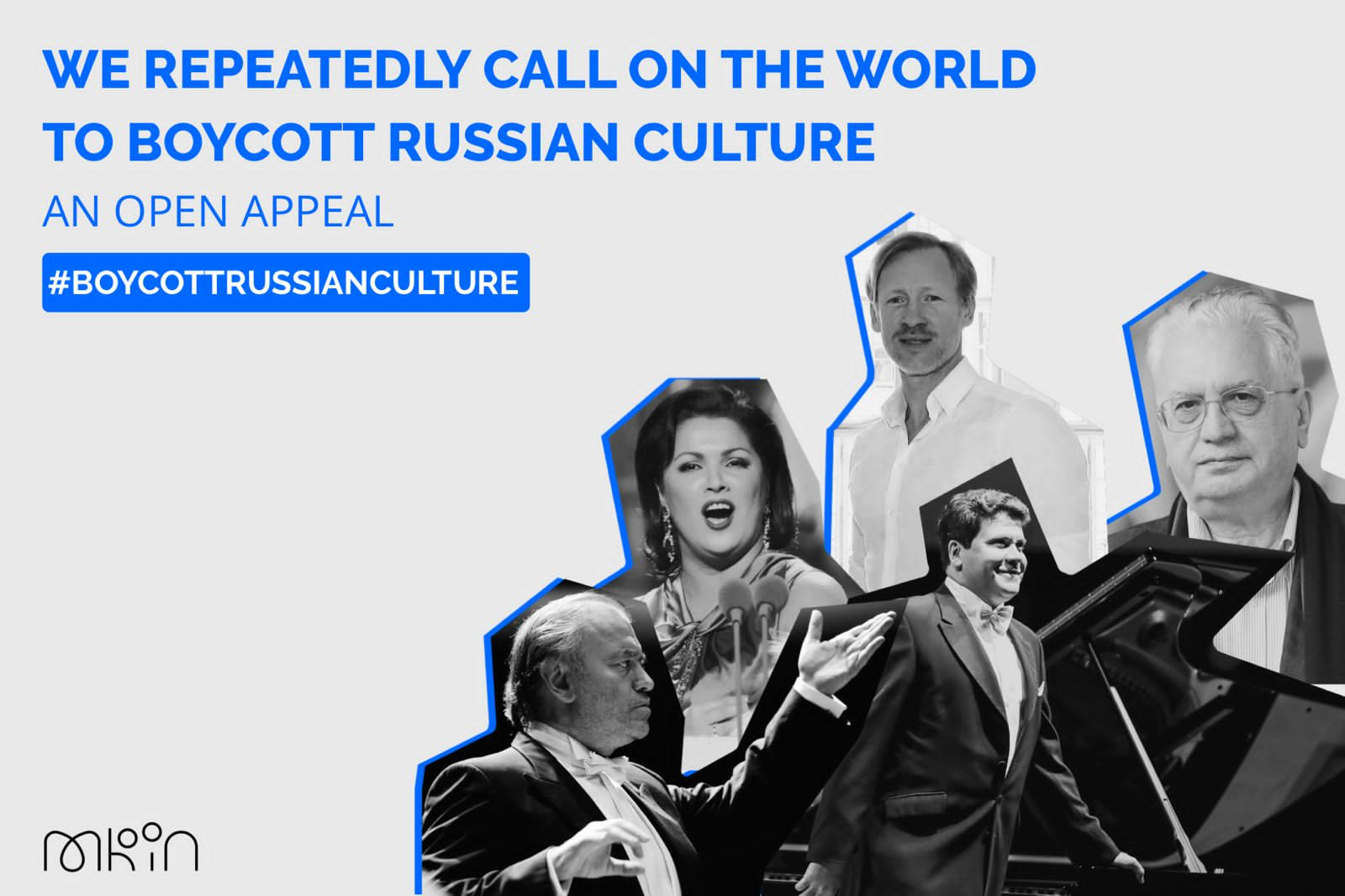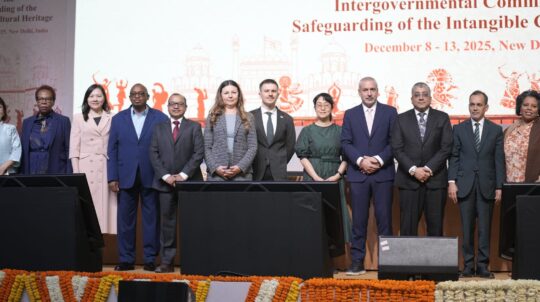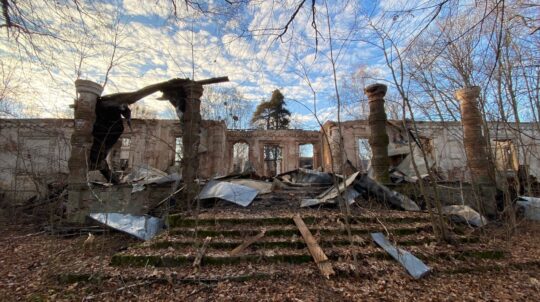Culture cannot be outside of politics. Especially when culture is one of the types of politics used by a nuclear terrorist state as a weapon in the war against world democracy.
Every day for the eighth consecutive month, Russian missiles fall on Ukrainian soil. Every day, Putin’s Russia deliberately destroys everything related to Ukrainian: it kills civilians, destroys civilian infrastructure, targets our theaters and museums, steals and appropriates the merits of Ukrainian artists, tries to convince the world of the greatness of Russian culture, while at the same time emphasizing the inferiority of Ukrainian culture. Today, October 10, Ukraine suffered a massive missile attack from Russia. The enemy launched more than 80 rockets at civilians, educational institutions, museums, libraries, hospitals, and objects of critical, transport and energy infrastructure. Russia took responsibility for the massive attack on Ukraine, considering it adequate.
As the Ukrainian army fights, Putin’s friends and his staunch supporters, who previously enjoyed the benefits of the European lifestyle, are scrambling to find a way to avoid sanctions. They talk about peace and brotherhood, but at the same time they do not address their government, which is actually the aggressor, which brutally invaded Ukraine and is trying to annex Ukrainian territories.
It is common knowledge that the totalitarian regime of the Kremlin actively uses Russian art and artists as a weapon of propaganda, as well as to clean up its reputation in the West. The director of the Hermitage M. Piotrovsky, who is close to the top of the Kremlin, compared the export of Russian culture to a special operation in his scandalous interview for Rossiiskaia Gazeta. “Our latest exhibitions abroad are simply a powerful cultural offensive. If you like, a kind of “special operation”. Which many do not like. But we are advancing. And no one can be allowed to hinder our advance.”
Not so long ago, Putin said during another speech that “Shostakovych’s Leningrad Symphony continues to evoke the strongest feelings in new generations” because it is about “love for the motherland and readiness to defend it”, implying that Shostakovych justified the war. The symbol Z in support of the war in Ukraine was placed on the facade of the Oleg Tabakov Moscow Theater. And the Yermolova Theater under the leadership of Oleg Menshykov began “creative cooperation” with the Investigative Committee of the Russian Federation.
Russian culture is a part of the Russian state military-totalitarian machine. And it cannot be divided into bad and good. Therefore, there should be no questions as to why the world should abandon Russian culture.
It seemed that there were not many people or cultural institutions left in the world who did not understand the intentions of the Russian Federation and the causes/consequences of the bloody “multiple steps” of the Putin regime.
But there are still those who do not shy away from cooperating with Russian artists who support Russia’s aggression against Ukraine or who cover up terrible crimes.
In particular, some theaters and concert halls resumed cooperation with the Russian opera singer Anna Netrebko. It is known that since 2014 she has been an active supporter of the Putin regime and the Russian occupation of Ukrainian territories. Netrebko was publicly awarded the DPR flag by one of its leaders, Oleg Tsarev. Anna Netrebko’s photo, proudly holding the DPR flag, became an icon of Russian propaganda and is still available on the Internet. After February 24, the Russian soprano made several forced, ambiguous and belated statements, in which she avoided direct criticism of Putin and condemnation of his actions in Ukraine. Being, as some believe, the No. 1 soprano in the world, you have no right to remain silent and distance yourself from politics, especially when these policies are led by the leadership of your country.
In April, the Metropolitan Opera in New York removed Netrebko from the performance of “Turandot”, replacing her with Ukrainian soprano Ludmila Monastyrska. Peter Gelb, general manager of Met, put it very aptly at the time: “Netrebko is inextricably linked to Putin.”
This is just one example of cooperation with Russian artists, flirting with those who carry and support the culture of murder and terrorism.
Some institutions and collectives continue to play Tchaikovskyi and Shostakovych, to hold on to Pushkin and Tolstoy – the names that Russia openly calls its weapons, having recorded them in Putin’s decree on the concept of foreign humanitarian policy. Today, during the bloodiest war in Europe since the Second World War, it is definitely not the time to hold on to these persons and pay tribute to the aggressor country.
My appeal to all European and international cultural representatives: do not allow yourself to be drawn into this deceptive game invented by Russia, claiming that Russian culture is not responsible for the war crimes committed by Russian forces. People who rape and kill Ukrainian children and civilians, burn Ukrainian books in the occupied territories, are brought up by Russian culture.
I call on everyone who sees the atrocities committed by Russia against Ukraine, the entire civilized world, to support this appeal and to refuse cooperation with Russian artists and the use of Russian works by composers and writers, which Russia deliberately calls its weapons. Otherwise, you stand on the same side as the aggressor and forever remain in history on the other side of evil.
Along with political and economic sanctions, we need to step up our efforts to boycott Russia’s presence in the international cultural space! There should be no dialogue with the terrorist culture.


